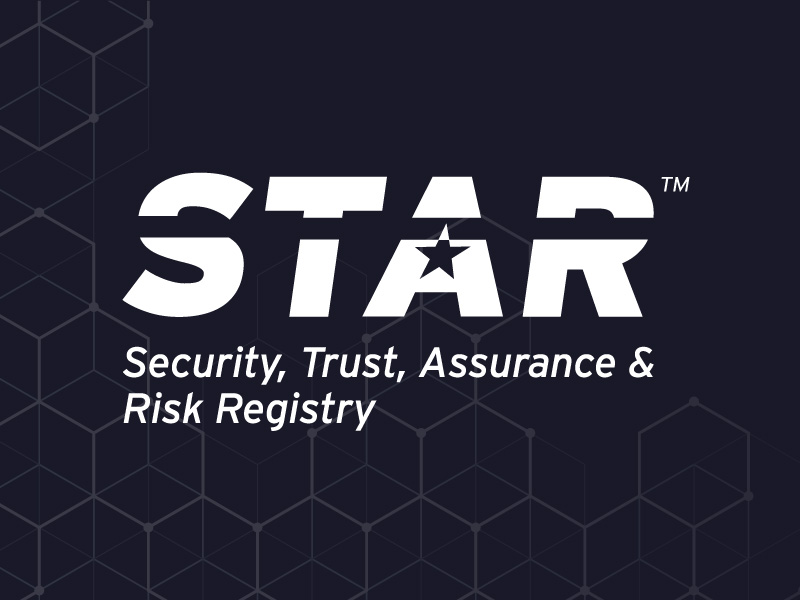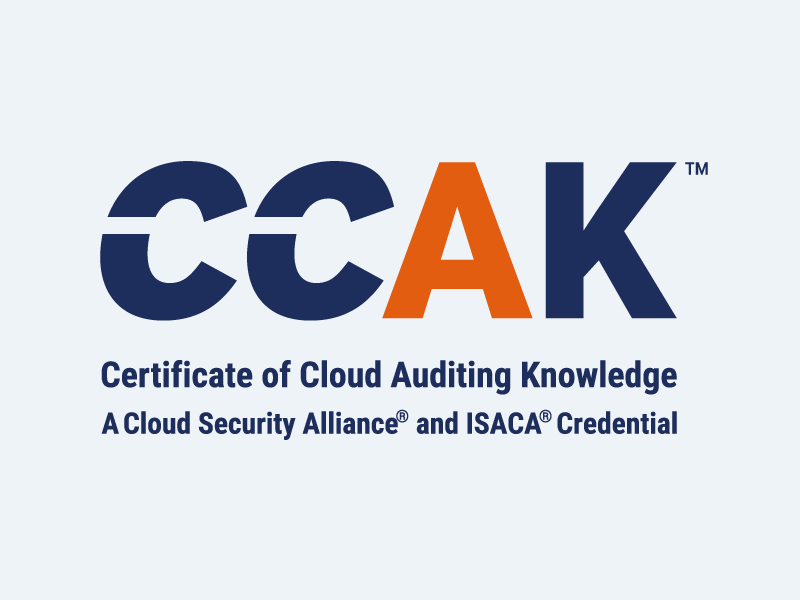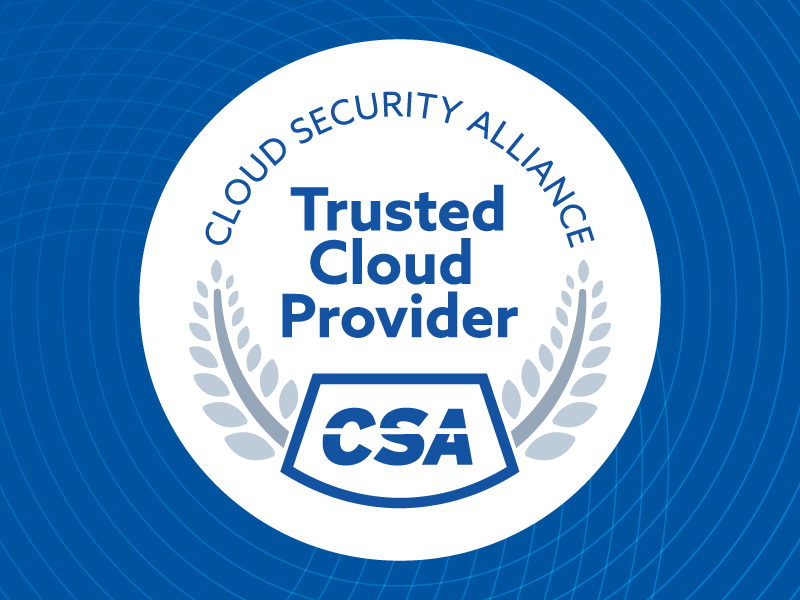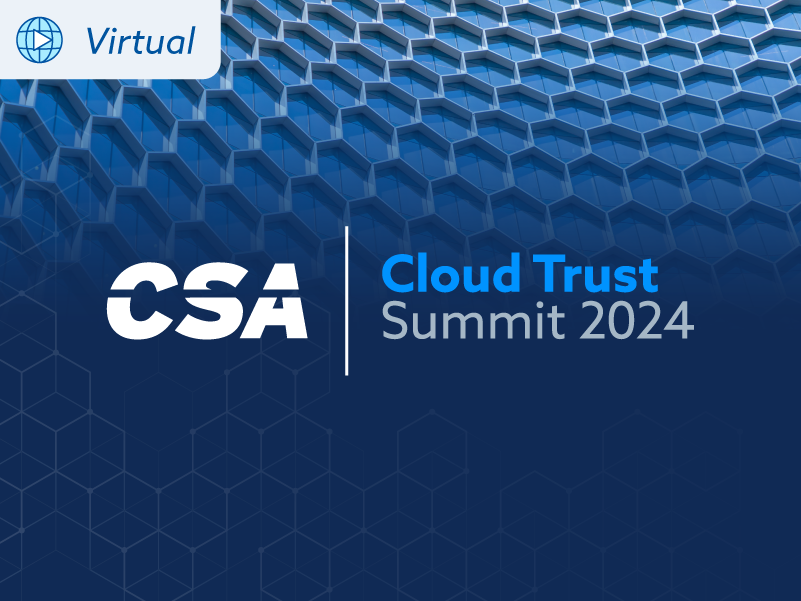SOC 2 and ISO Certifications vs CSA STAR
Blog Article Published: 09/18/2023
I already have a SOC 2 Type 2 and ISO/IEC 27001 certification. Why would I want to upgrade to STAR?
First, let’s set the stage with a discussion on scope and focus:
- STAR: The STAR certification is specifically designed for CSPs and assesses the security controls and practices related to cloud services. CSA STAR requires designated roles and responsibilities so that providers and users are clear on accountability through the Security Shared Responsibility Model (SSRM).
- SOC 2: SOC 2 certification focuses on the security, availability, processing integrity, confidentiality, and privacy of an organization's systems and data, including both cloud and non-cloud environments. However, the organization chooses what is applicable and not all of the CIA Triad is covered. With STAR all controls must be evaluated, and anything noted as N/A must be justified and validated by the assessment firm.
- ISO/IEC 27001: ISO/IEC 27001 is a broad information security management system (ISMS) standard that covers a specific scope of organization, addressing various aspects of information security, including people, processes, and technology. STAR ensures the scope is “Fit for Purpose and “SLA Driven,” to ensure the proper scope that covers all interested parties is covered.
If you already have SOC 2 Type 2 and ISO/IEC 27001 certifications, you might consider upgrading to the Cloud Security Alliance (CSA) STAR (Security, Trust, Assurance, and Risk) Certification/Attestation for several reasons:
1. Enhanced transparency:
STAR provides a public registry where organizations can share their security and compliance posture. This allows customers, partners, and stakeholders to easily verify your security controls and understand your level of commitment to information security.
2. Global recognition:
STAR is recognized globally as a trusted security framework. It is aligned with international standards and widely accepted across industries. By obtaining the STAR certification, you can demonstrate your organization's dedication to maintaining robust security practices and aligning with global best practices.
3. Cloud-specific focus:
While SOC 2 and ISO/IEC 27001 certifications cover general information security practices, STAR focuses specifically on cloud service providers (CSPs). It evaluates the security controls and practices of CSPs, helping customers make informed decisions when choosing cloud services. If you provide cloud-based services or heavily rely on cloud infrastructure, STAR can provide added assurance to your customers.
4. Consistency and comparability:
STAR follows a consistent assessment and reporting framework developed by CSA. This allows for easier comparison of security practices among different CSPs. The standardized approach promotes transparency, enabling customers to assess and compare the security capabilities of various service providers more efficiently.
5. Continuous monitoring and improvement:
STAR certification includes ongoing monitoring and continuous improvement requirements. This ensures that your security controls are regularly assessed, audited, and updated to address emerging threats and vulnerabilities. It demonstrates your commitment to maintaining a high level of security over time.
6. Customer confidence and competitive advantage:
By obtaining the STAR certification/Attestation, you can instill confidence in your customers, partners, and stakeholders. It shows that you take information security seriously and have undergone a rigorous assessment by an independent third party. Having STAR certification can differentiate you from competitors who may not have obtained this specific certification, giving you a competitive edge.
The Differences Between STAR, SOC 2, and ISO/IEC 27001
Let’s discuss the contrast between STAR and SOC 2 and ISO/IEC 27001:
1. Framework and standards:
- STAR: STAR certification is based on the Cloud Controls Matrix (CCM) framework developed by CSA. Controls are sector specific, ensuring you are covering what is critical to cloud users and maps to several other frameworks and standards.
- SOC 2: SOC 2 is based on the Trust Services Criteria (TSC) developed by the American Institute of Certified Public Accountants (AICPA).
- ISO/IEC 27001: ISO/IEC 27001 follows the international standard for information security management systems (ISMS) set by the International Organization for Standardization (ISO) and the International Electrotechnical Commission (IEC).
2. Transparency and registry:
- STAR: STAR provides a publicly accessible registry where organizations can publish their security assessment results, allowing stakeholders to easily verify their security posture.
- SOC 2: SOC 2 reports are not publicly available and are typically shared only with relevant parties, such as customers, partners, or regulators.
- ISO/IEC 27001: ISO/IEC 27001 certification does not have a public registry, but the certification itself can be verified with the issuing certification body.
3. Compliance requirements:
- STAR: STAR certification has specific requirements tailored for CSPs, focusing on cloud-specific security controls and practices.
- SOC 2: SOC 2 certification assesses whether an organization has implemented and maintained controls aligned with the TSC criteria, which cover security, availability, processing integrity, confidentiality, and privacy.
- ISO/IEC 27001: ISO/IEC 27001 certification requires implementing an ISMS that encompasses a wide range of security controls and practices across the entire organization, not limited to the cloud.
4. Global recognition:
- STAR: STAR certification is recognized globally and widely accepted as a trusted security framework for cloud services.
- SOC 2: SOC 2 is primarily recognized and adopted in the United States, although there is an ISAE 3000 framework that is recognized internationally.
- ISO/IEC 27001: ISO/IEC 27001 is an internationally recognized standard for information security management and is widely adopted across various industries worldwide. It is generic in terms, so scope and controls do not necessarily cover anything specific to the cloud.
It's important to note that while there are differences between these certifications, they can complement each other and address different aspects of security. The CCM is mapped to all the current mainstream frameworks and standards with a gap analysis embedded within the CCM itself. This makes integration and evaluation cleaner and easier allowing for managing the ISMS under one roof. The choice of certification(s) depends on your organization's specific needs, industry requirements, and customer expectations.
Related Articles:
How DSPM Can Help Solve Healthcare Cybersecurity Attacks
Published: 04/30/2024
Your Ultimate Guide to Security Frameworks
Published: 04/29/2024
The Future of Cloud Cybersecurity
Published: 04/29/2024
CPPA AI Rules Cast Wide Net for Automated Decisionmaking Regulation
Published: 04/26/2024





.png)



